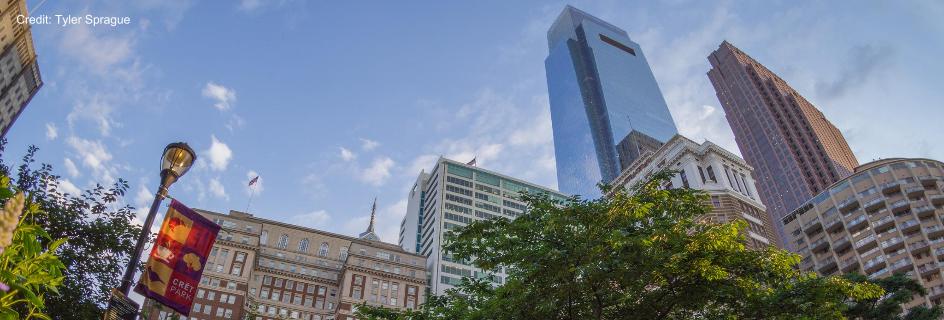- About GPA
- Global Events
- GLOBAL NEWS FROM PHL
- Global Directory
- World Heritage City
- Sustainable Development Goals (SDGs)
- Global Philadelphia Role on Sustainable Development Goals
- Completed Sustainable Development Goals
- SDG#1: No Poverty
- SDG #2: Zero Hunger
- SDG#3: Good Health & Well-Being
- SDG#4: Quality Education
- SDG#5: Gender Equality
- SDG#6: Clean Water & Sanitation
- SDG#7: Affordable and Clean Energy
- SDG #8: Decent Work and Economic Growth
- SDG #9: Industry, Innovation, and Infrastructure
- SDG#10: Reduced Inequalities
- SDG#11: Sustainable Cities and Communities
- SDG#16: Peace, Justice and Strong Institutions
- SDG#17: Partnerships for the Goals
- Press
Home ›
Temple University Succeeds in Attracting Global Students
Posted on April 22, 2013

Related
Organization
Organization
Danielle Miess, for GPA -- When Po-Yuan Huang, a Taiwanese International Business Administration major, decided to study abroad in America, he knew he wanted to study in a major city.
Although Huang had the opportunity to study abroad in New York City, he chose to be a Temple University student in Philadelphia so he could be close to the downtown and experience city life.
With nearly 2,000 international students studying at Temple from over 125 countries, Temple has one of the highest populations of international students in the Philadelphia area.
According to Ingrid Spangler, the Communications Manager at the Temple University Office of International Affairs, it is often the proximity of Philadelphia and the ranking of programs offered at Temple that brings in the students.
“A big initiative of the University is trying to get into the top 100 [schools],” Spangler said. “A lot of our departments are ranked very highly – especially the art department and [Fox] business school. You want to go where the best academic program for your interests is [located].”
Jeffrey Meris, a Temple sophomore at Tyler School of Art from the Bahamas, agreed. Meris said he chose the school because Tyler was listed as eighth place in art schools throughout the country.
The Temple international student population has steadily been growing throughout the past few years. The school’s Provost and Senior Vice President for International Affairs and once an international student himself, Hai-Lung Dai, put in place efforts to double the international student base.
Efforts to increase the student population are still in progress. Hai-Lung Dai said in an interview with Campus News that his reasons for increasing international students were diverse. An increase of international students would add more professional and research collaborations, study abroad opportunities and student and faculty exchanges, as well as an added understanding for all on how our world works.
Spangler said that there were many factors naturally in place in Philadelphia that draw students to Temple University. According to Spangler, the cheaper living prices as opposed to other major cities were a huge draw, in addition to the accessibility to other major cities in the area, like Washington D.C., Boston and New York, and the fact that Philadelphia was a smaller and less intimidating city than New York.
“I think it is also fact that Philadelphia is historic and the birthplace of America,” she added. “There’s so much to learn about the country.”
Spangler also said that the different ethnic neighborhoods in Philadelphia helped the international students feel at home in the city.
To draw international students to Philadelphia, Temple offers a variety of programs to help attract students and immerse them in American culture.
According to Spangler, the more popular options are a home stay program, where students can live with an American family, and a Global Living and Learning Community-an opportunity for about 20 international and American students interested in studying abroad to live together in the dorms and learn about each other’s culture.
The various student-run clubs throughout the university also offered ways for students to feel connected with American students or meet others from their home country. Po-Yuan Huang participated in the Taiwan Student Association at Temple, as well as Habitat for Humanity. He liked the organizations because they provided networking opportunities, as well as ways to meet other students.
International Affairs also hopes to branch off in the future and assist the university in offering more internship opportunities for international students in the future, as many of the students could only work on campus.
“International students are graduating with a resume just as good as a domestic student who has a little more leeway for job experience,” Spangler said.
In addition to business and learning opportunities, both Huang and Meris expressed a fondness for the city. Huang said his one of his favorite aspects of the city culture was the open-mindedness of residents of the city and their enthusiasm at sports games, as compared to Taiwan.
Meris considers living in Philadelphia after he graduates, due to location proximity and low price of living. Huang also hoped for business opportunities to return to the city.
According to Ingrid Spangler, many of the students often remained or returned to Philadelphia after completing their time at Temple. Students also returned to their home countries to be future leaders or work in international business companies, with jobs made possible by their time abroad.
“Often they come and fall in love with the city,” Spangler said.
Image courtesy of http://www.temple.edu/provost/international/








